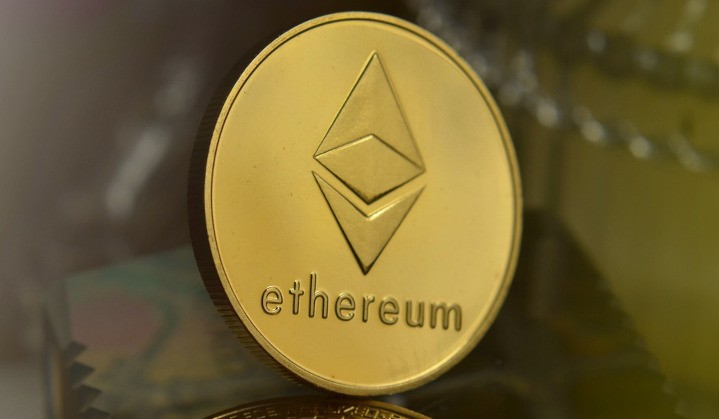Decentralized Finance: Crypto’s Next Big Boom or Bust
Oct 02, 2020, 7:23pm
Decentralized Finance is making waves as millions pour into the nascent industry, but is DeFi really ready to change the world?
Decentralized finance (DeFi) is making headlines and changing paradigms in 2020, and anyone who is interested in cryptocurrencies should be interested in DeFi. While the applications for this emerging technology are still being developed, the potential is staggering. DeFi leverages “trustless” networks, blockchains, cryptocurrencies and smart contracts to bring the world into a new age of financial services. This new world promises to make financial services more open and more accessible to the global community than ever before, giving individuals the power to act without the influence of large corporations or governments. But, as with all emerging technologies, especially those with a financial application, the hype surrounding DeFi could be blowing the benefits out of proportion. If you’re at all in-tune with the world of digital finance, you will certainly remember the lure and eventual implosion of the “Initial Coin Offering”. DeFi shares a lot of similarities with the ICO boom of late 2017, most importantly – the promise to make investors very rich, very quickly.
What is the Big Deal About DeFi?
To start, we need to make the distinction between DeFi and cryptocurrencies. Cryptocurrencies are tokens – These digital assets are built upon an immutable blockchain and are used to represent value and provide a means of exchange. These assets are not created or governed by any central governing authority, and there is no central infrastructure in which to use cryptocurrencies. If you own crypto, your sole-discretion is the only governing authority over how the asset is used. There is no bank to store it in, no truly regulated industry to aid in its exchange, and no government to back it, tax it, decide how much of it is printed or whether or not you can use it in a particular context. Basically, cryptocurrencies are a decentralized value that only follows the algorithms they were programmed with and the direction of those that own them.
Decentralized Finance leverages the decentralized nature of cryptocurrencies and blockchains to offer consumers financial services that rely on the same algorithms and personal freedoms afforded by cryptocurrency technology. Loans, credit, mortgages, banking services, and the like are traditionally governed and offered by sanctioned third-party institutions that set rules and take hefty administration fees. DeFi does away with the middleman by using smart contracts to build frameworks and enable users to offer financial services in a trustless context, without the need for approval or oversight from centralized governing authorities. Basically, DeFi provides a forum where individuals and entities can take their cryptocurrencies, and leverage their value in the same manner that a bank or stock market leverages the value of fiat currencies. At present, many novel DeFi solutions are gaining traction.
Take Compound Finance for example, which is a money market that lets holders loan out their assets to earn interest or to borrow assets against collateral. The borrowing amount on their collateral is fixed at 66%, and the interest they can earn on their assets fluctuates based on supply and demand. The idea is new, and there are some kinks to work out, but the concept is intriguing. Imagine a world where anyone could sign up for a service like Compound Finance and gain access to their suite of financial tools without having to prove their identity, their income level, their education, their social status, or even the need to provide a signature. The freedom to lend and borrow value in this context is astounding and could open doors for many who would not otherwise have the opportunity to realize the power of their wealth.
It’s projects like Compound Finance that really excite me. The level of freedom and autonomy provided by such a service has implications that far-outreach the current use-cases. If Compound Finance can continue to polish its end-user experience, it is easy to imagine a world where making simple peer-to-peer loans is commonplace, and the more people who have access to loans and credit, the more the global economy will roar. Micro-loans in impoverished countries could bootstrap the world’s most vulnerable economies and help individuals find the means to change their circumstances. Middle-class individuals could fund this bootstrapping, loaning out their modest savings and equity in exchange for gains much larger than what they would get through a GIC or Term Deposit at a big bank. Big Banks could see their bottom end cut out from underneath them, and corporate greed could give way to competitive pricing. Lastly, the burden placed on societies to regulate monetary systems could be greatly reduced, freeing up taxpayer funds and putting an end to the corruption and greed that permeates every level of the financial system on a global scale. Through the right kind of eyes, DeFi appears to pick up the revolutionary torch lit by the crypto-age and run with it.
But, What about the Hype?
Any red-blooded crypto-writer should know by now, anything in this space that looks like it is going to change how the world works, probably won’t. At least, not before it is hyped to the moon and back, implodes numerous times, causes millions in inflated, bubble-bursting market cap losses, and ultimately loses the faith of 90% of the people who once believed in its revolutionary potential.
The most obvious flaw with DeFi is the fact that it is currently being hyped up like John McAffe’s d@*k at a new year’s party. The media is churning out DeFi related content faster than you can say ‘Pop!’ and that should be a pause for concern. DeFi is so new, and so wholly unregulated that it is impossible to state that it works. The concept just hasn’t been around long enough to be tested, and when you really look at how quickly value is being funneled into something no one truly understands, there is a lot of potential for failure. Greed fuels hype, and hype fuels more greed. DeFi is on the precipice of implosion
Just take a look at the smart contracts that DeFi relies on to provide governance to the plethora of financial services being developed. These smart contracts are only as smart as the people who write them, and one faulty parameter could open the door to hacks and glitches of epic proportions. We are talking about relying on a piece of code to protect every single version of financial exchange under it. These smart contracts need to be 100% infallible, or the end result could be catastrophic. Human error is still a very real possibility, even when the whole ecosystem is supposedly “autonomous”, as mistakes HAVE to be made before the DeFi space can mature and contracts can be refined.
Another frightening aspect of DeFi is “Yield Farming”. Yield farming is the idea that users must stake their funds into a DeFi ecosystem in order to provide liquidity to the platform. In exchange for the staking, users are rewarded with newly minted coins of a token native to the DeFi platform. This adds up to quick gains, but a loss of control over the initially staked funds, leaving stakers to collect from an ever-growing supply of eventually meaningless tokens in exchange for the real value they initially invested in the platform. “Pop!”.
As you can see, it is hard to say that DeFi is the next big thing, because it has all the hallmarks of the last big thing. That said, so did Bitcoin, so did Ethereum and so did Apple, Google, and Tesla. DeFi might revolutionize finance, and I for one hope it at least changes it for the better. The concept is neat, and the opportunity to catalyze change always exists in the fast-paced world of digital value, you just have to separate the reality from the hype.





